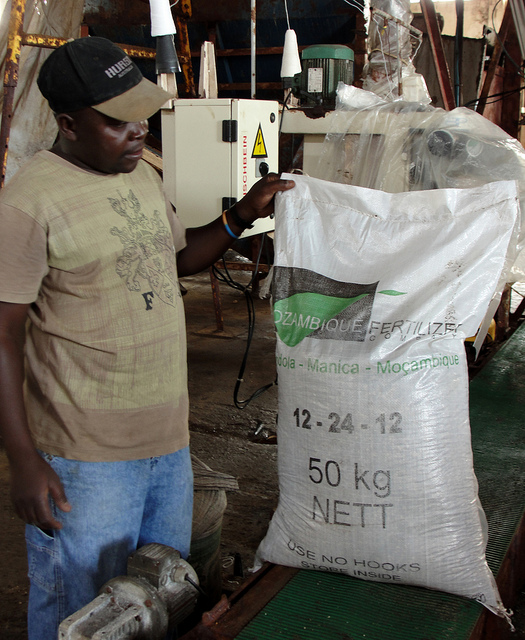Overview
Researchers
Cátia Batista
Professor of Economics at Nova University of Lisbon
Dean Yang
Professor of Public Policy and Economics at the University of Michigan
- Country
- Mozambique
- Timeline
- 06/14/2011 - 02/01/2013
- Constraints
- Credit
- Technology Category
- Fertilizer, Inputs

Photo credit: IFDC Photography via Flickr
This pilot study offered internal migrants in Mozambique access to a Banco Oportunidade de Moçambique (BOM) remittance payment plan designed to help their rural families adopt modern agricultural inputs. The plan allowed migrants to pay for the purchase and delivery of an agricultural package consisting of fertilizers and hybrid seeds rather than sending their families cash.
The research team offered a subsidized version of the BOM payment plan to a randomly selected subset of the migrants to make participation more attractive. However, hardly any migrants chose to use the payment plan. Low take-up of the plan was not caused by a lack of remittance cash flows– a survey of the migrants found that a majority of internal migrants send money to their families each year, usually once per month. Focus group discussions illuminated that migrant participants did not trust the financial innovation enough to adopt it.
Since almost no migrants used the initial financial product the team aimed to study, the researchers pivoted away from studying migrant remittances as a way to increase agricultural modernization. Instead, the research team re-designed the study to understand migrants’ preferences for sharing their remittances in cash vs in-kind.The research team discusses results from the new lab-in-the-field experiment in the research publication Directed giving: Evidence from an inter-household transfers experiment, also available in our “Related Outputs”.